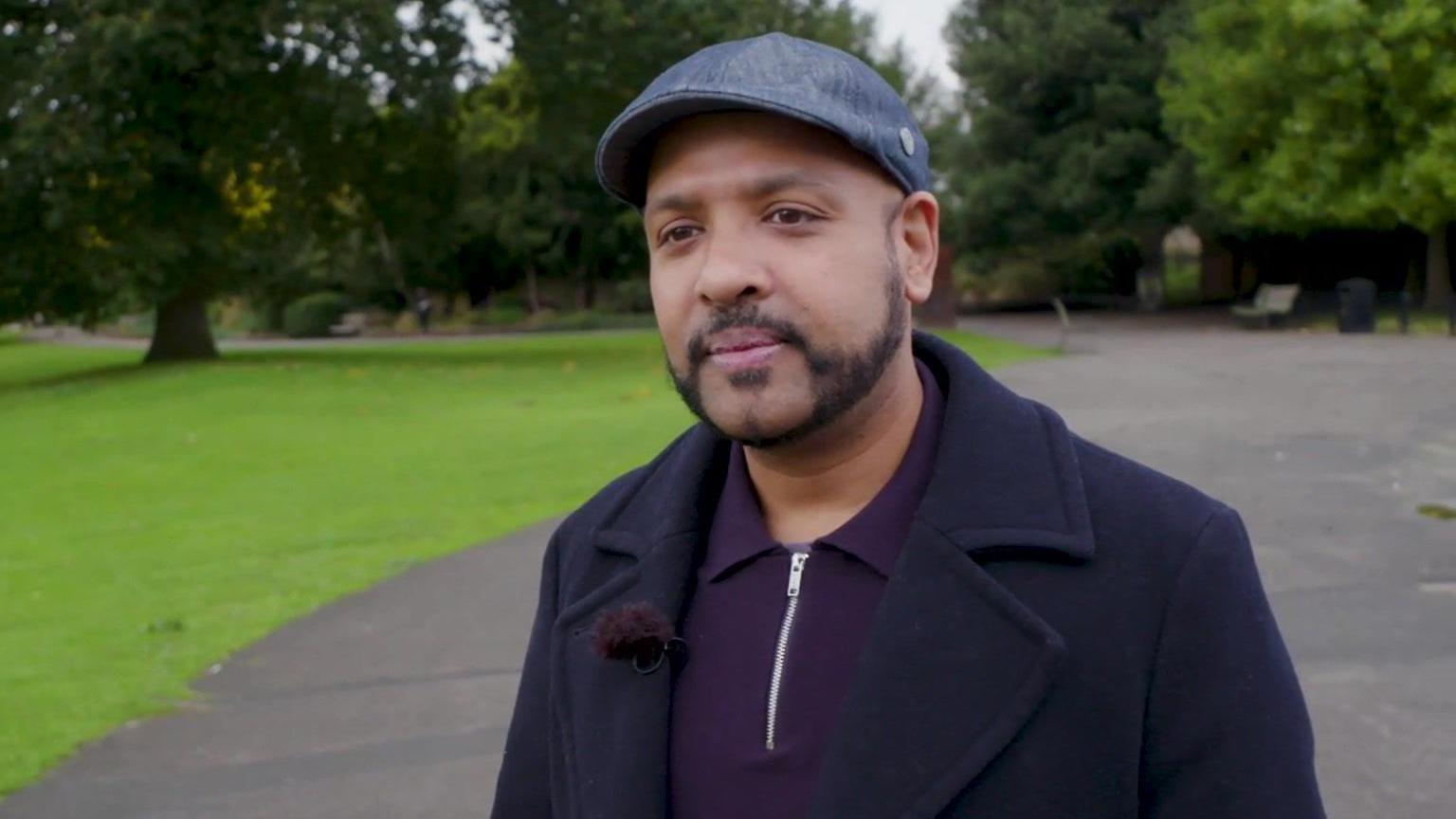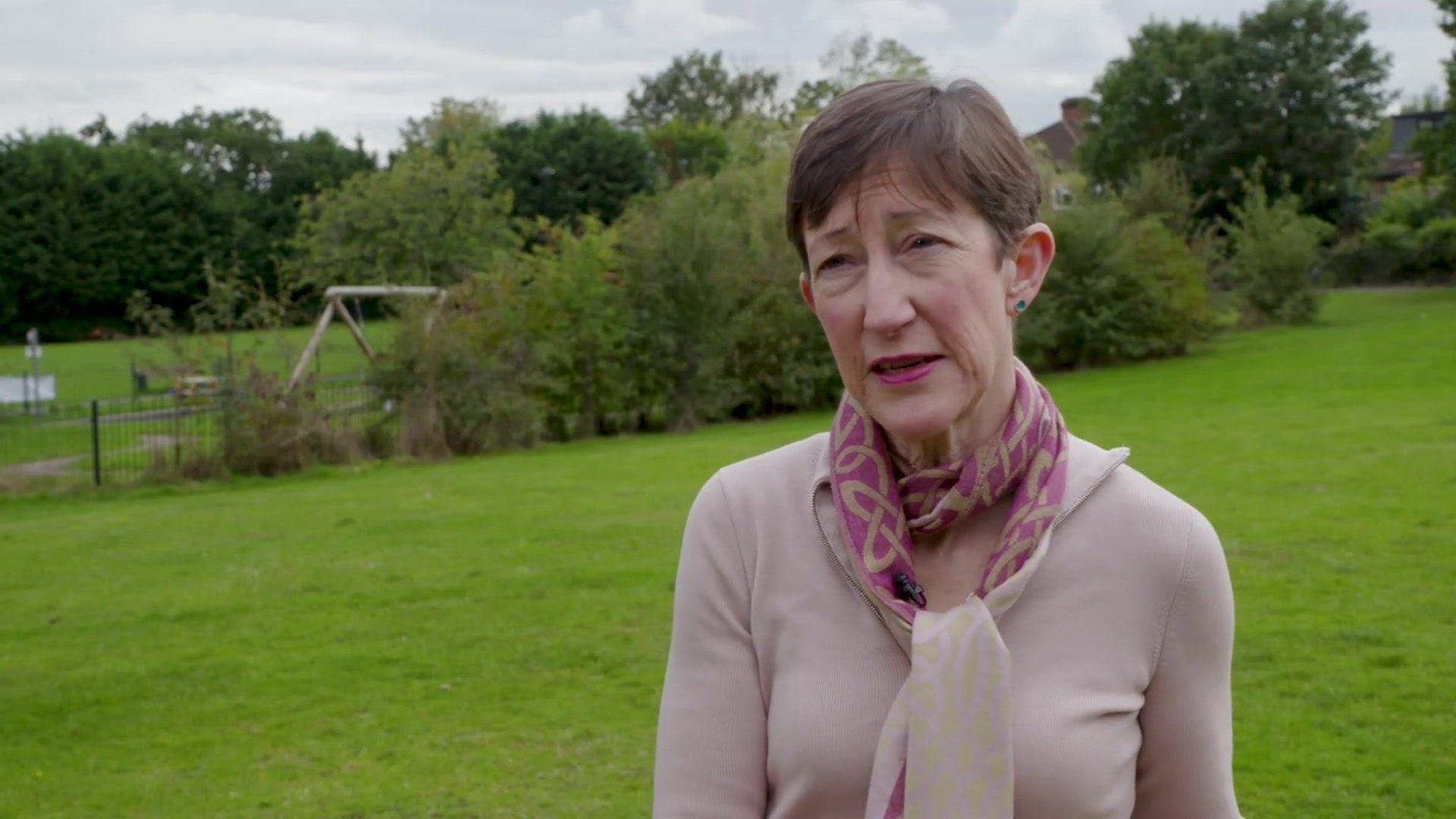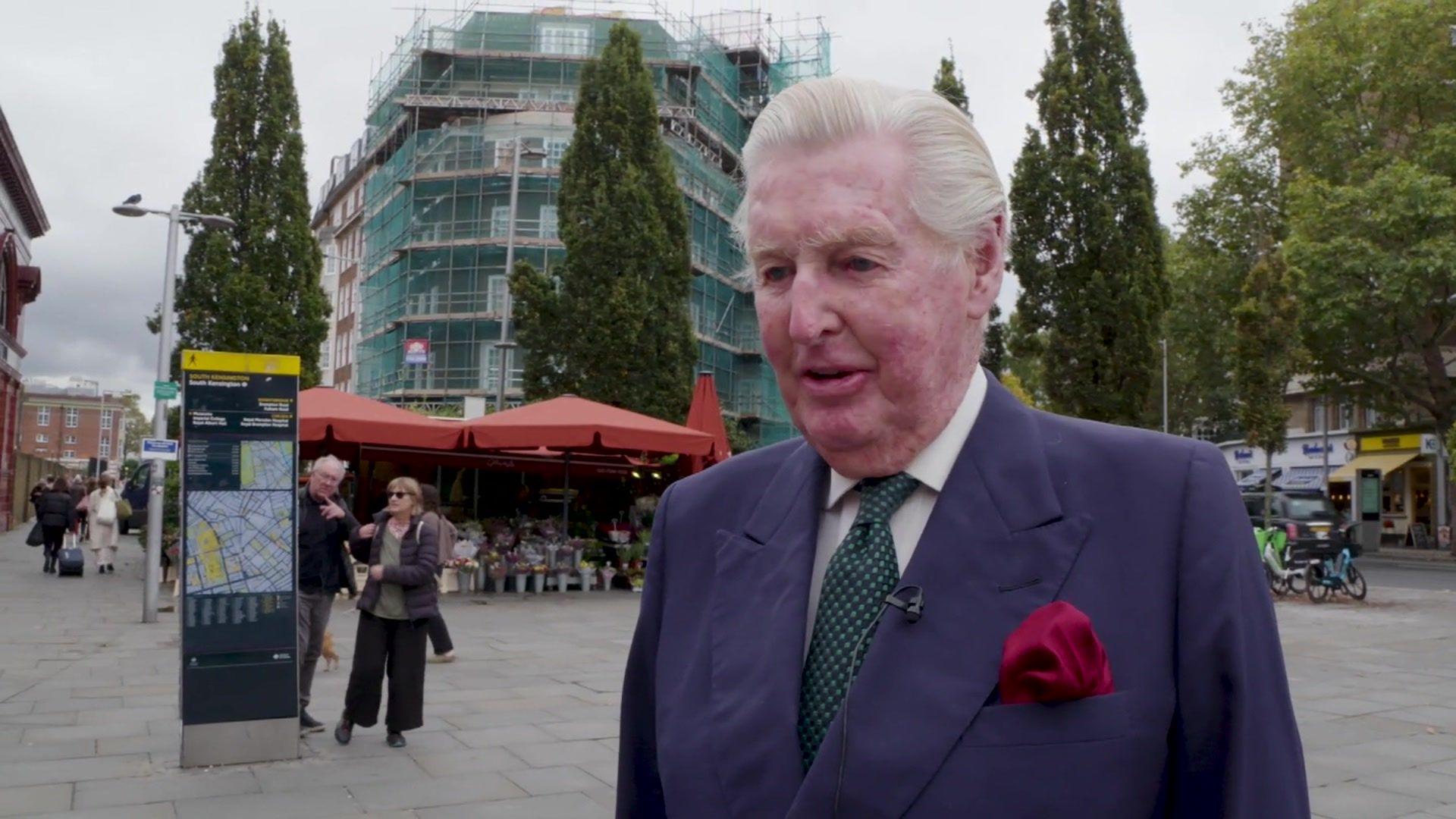'I pay for my mum's carer and I chip in for bills'

Aju Chacko says his mother "would be struggling" if he did not help her financially
- Published
“I pay for her carer, and sometimes I chip in for the bills like gas, electricity and everything," says Aju Chacko, who has been helping his mother financially following his father's death 15 years ago.
The 47-year-old from west London is one of many supporting a parent in their retirement.
“Of course it’s going to affect my finances for my family, but luckily I have my wife to support me," he says.
If he was not helping, his mother “would be struggling”, Mr Chacko says. “Really, she’s going to struggle.”
'Flowing the other way'
Research shows that many adult children are helping their parents financially.
According to investment company Aegon, external, 55% of 1,048 adult children surveyed expect to provide parents with financial support in retirement.
And 25% are already helping their parents cover everyday bills.
'Bank of mum and dad' lends £5bn a year
- Published3 May 2016
Kath Scanlon, distinguished policy fellow at LSE London, said: “It might be the same people who received help from their parents when they were in their 30s, say, to get on the housing ladder.
"When they’re in their 50s and 60s, the money will be flowing the other way as they might be helping support their parents with care costs, or with just paying the utility bills.
"I guess what’s different is that older people are living a lot longer, so there are a lot more older parents around who might need financial support when they’re older.
“Not everyone, but it will be the case."

Kath Scanlon says what's different is that people are living a lot longer
Speaking to BBC Politics London, one woman said: “My dad’s living out of his pension currently, but sometimes I have to top him up with my wage.”
“I think we should take care of our parents," another woman said. "They took care of us at one time, so it’s our place to take care of them.”
'Never going to happen'
The research from Aegon suggests there is a generational divide when it comes to who will be financially self-sufficient in retirement and who may need help.
Those aged between 45 and 54 were most upbeat about their parents’ prospects - 46% said they believed their parents were financially stable enough to support themselves through retirement.
But this dropped to just 2% for those aged 18 to 24.
For those people in their 50s, their parents would be more likely to have a final-salary pension, which provides a guaranteed annual income.
And those parents also benefited from more affordable housing when they were younger.

One man says he "doesn't know" if his children will have enough money to support him in later life
One man who spoke to BBC Politics London said receiving financial support from his children was "never going to happen".
"I think it’s a good idea - it’s never going to happen," he said. "It's the other way around.
“I mean, we’ve brought them up, educated them, we’re educating grandchildren through school and universities.
“Chances of them having enough money to help me out in my old age – I really don’t know.”
Two thirds of adult children acknowledge that they have benefited from the "bank of mum and dad", Aegon research found.
For 37%, this ended in their 20s, but for one in six, this support continued into their 30s.
Eliza Filby, generational historian and author, said society in the UK was now "dominated" by family wealth, with money going both "up and down the family tree".
She added: “At a time when the state has shrunk and the market has been dysfunctional, the family have stepped up, and I think you’re going to see that more and more in the coming years.”
Ms Scanlon said the differing financial situations were already affecting London's demographics.
"Families can’t afford to buy family-sized homes in London," she said.
“In primary education in London, even secondary schools, we’ve seen a lot of schools closing in central and inner London, even in zones two and three, simply because there are not as many children of primary school age as there used to be."
Watch the full story on BBC Politics London at 10:00 BST on 13 October or on iPlayer.
Listen to the best of BBC Radio London on Sounds and follow BBC London on Facebook, external, X, external and Instagram, external. Send your story ideas to hello.bbclondon@bbc.co.uk, external
Related topics
- Published27 August 2019

- Published28 August 2023
